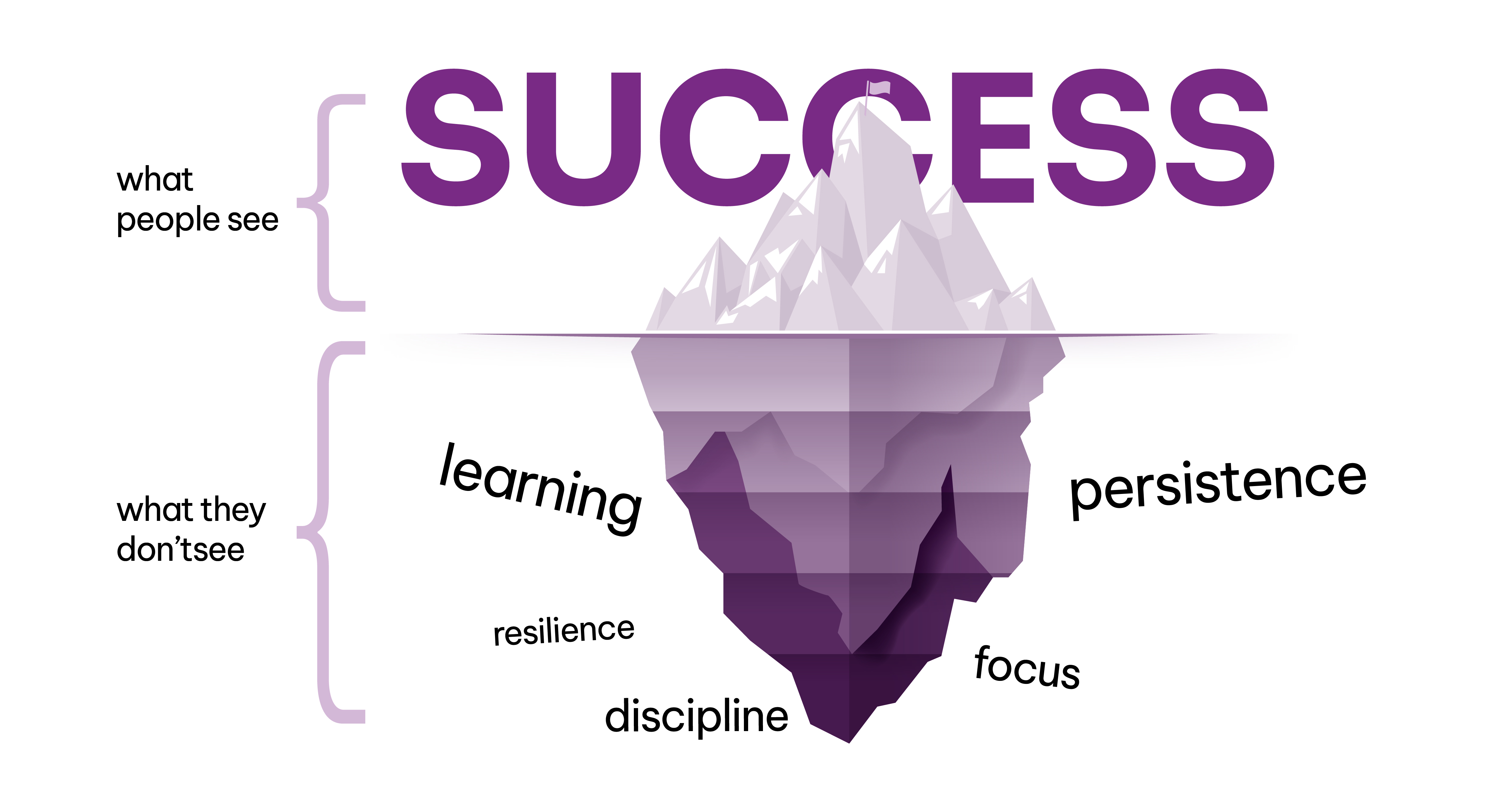By
•
Saisri Pinnam
22 September 2025
•
10 min read


In today’s fast-paced, scroll-driven world, success is often framed as luck, hard work, or going viral. While luck can open doors, it rarely sustains achievement—years of unseen effort, persistence, and discipline are what truly build lasting results. Mislabeling success as “luck” often hides the reality of the effort behind it and the unequal starting points people have.
Social media amplifies distorted views of success, showing either effortless luxury or burnout, which fuels comparison and anxiety. Endless scrolling can make us measure our lives against curated highlights, draining motivation and clouding our own sense of progress. But when used intentionally, these platforms can also foster learning, connection, and inspiration.
Ultimately, what grounds us is purpose, focus, and routine. True success isn’t about being seen or chasing shortcuts—it’s about building something meaningful, brick by brick, day by day. The most enduring achievements are those quietly cultivated, strong enough to last even when no one is watching.
In today’s world, conversations about success are everywhere. Some say it’s about luck, others glorify relentless hard work, while the idea of purpose often gets pushed aside in the rush. A generation ago, stability in big organisations was the dream. Many professionals measured success by the security of long-term roles in large organisations —-all they hoped for is steady growth, pensions, loyalty. Now, the spotlight is on startups, disruption, and the belief that one viral idea can change a life overnight. Young professionals are encouraged to “make it” quickly, inspired by unicorn founders and billion-dollar exits. Yet the lesser-told reality: research shows that 9 out of 10 startups fail within five years (Startup Genome, 2024). The fast-track dream is exciting, but it’s also uncertain, where luck often gets over-credited, and quiet discipline goes unnoticed.
But beneath all these changing narratives, the deeper question lingers: Is success about being seen, or about building something rooted in purpose?

Luck is one of the most misunderstood parts of success. It’s tempting to label achievements as ‘lucky’ because we rarely see the years of persistence, learning, and discipline behind them. To the person living it, what others call luck often feels like hard work finally meeting the right opportunity.
Of course, luck does play its part – being in the right place at the right time, meeting the right person, signing the right deal, catching a trend before it explodes. But while luck may start the story, it rarely sustains it. Without consistency, focus, and resilience, a lucky break often fades as quickly as it appeared. We generally confuse luck with destiny. And just as often, there are people who work equally hard, even harder sometimes, with the same hunger, who don’t get that one lucky break. That doesn’t make their effort less valuable, it only makes their path less visible.
This is where perception matters. When we over-credit luck, we dismiss the discipline behind success. And when we under-credit it, we ignore the truth that not everyone begins with the same chance, resources, networks, or timing. Recognizing this balance helps us see success more honestly not as pure fortune, but as an intersection where timing, persistence, and purpose meet. It’s in this middle ground that both humility and empathy take root: humility for our own wins, knowing they weren’t ours alone, and empathy for others whose effort may not have been rewarded in visible ways.

Social media adds another layer to how success is perceived. On one hand, filtered influencers showcase lifestyles that seem stitched together by pure luck: luxury, freedom, effortless wins. On the other hand, reality-check influencers expose burnout, toxic hustle, and the dangers of chasing validation.
Most people’s reality isn’t all luxury or all burnout— it lives in the small wins, steady effort, and slow progress that rarely makes it to the feed. But because this doesn’t grab attention, it often gets drowned out. That’s when many of us fall into endless scrolling, searching for a more “real” version of success. Part of why we scroll endlessly is because we’re searching for patterns, for reassurance, for some sense that luck has a formula we can decode. But instead of clarity, we often end up with comparison. This habit, often called doomscrolling, feeds on overly curated or negative content and slowly blurs our sense of what genuine progress looks like.
Research published in Technology, Mind and Behavior (2023) shows that doomscrolling is tied to higher stress, reduced focus, and lower satisfaction with personal progress. The more we scroll, the harder it becomes to separate our own path from the distorted versions of success constantly flashing on screen.
But the platforms aren’t entirely to blame, it’s also about how we use them. The same feed that fuels comparison can, with intention, become a tool for growth. Following communities of practice, engaging with thoughtful voices, or even networking across industries can transform scrolling into a source of awareness and connection. The documentary The Social Dilemma highlights this paradox well: algorithms amplify what holds our attention, which means the real question isn’t whether social media is good or bad—it’s what we choose to feed it, and in turn, what we allow it to feed us. We really need to be conscious of what we engage with.
This isn’t a Gen Z or startup-era phenomenon alone. It cuts across professions and generations. A CEO comparing their growth to peers on LinkedIn, a mid-manager feeling left behind by viral success stories, or a fresh graduate overwhelmed by curated feeds— everyone is touched by the same pressure. Comparison has become universal.
The weight of comparison isn’t just emotional; it quietly shifts how we define success. Instead of asking ‘What do I want?’, we start asking ‘Why don’t I have what they have?’ That subtle change can drain motivation faster than failure itself.
Comparison convinces us we are already behind in a race we never agreed to run.
What cuts through this noise is not luck, and not even bursts of hard work we throw in occasionally. It’s these quieter companions:
Purpose is rarely a sudden discovery. More often, it is the clarity built brick by brick, through small daily choices that align with who we want to be.
The world may glorify luck, amplify hustle, and distract us with fleeting definitions of success. But clarity of purpose still comes back to the basics: focus, discipline, and routine. Between the steady climb of the past and the sprint of the present, meaning never lies in chasing shortcuts, but in building a steady foundation strong enough to hold purpose when it arrives.
“Success isn’t about being seen, but about building something strong enough to last when no one is watching.”